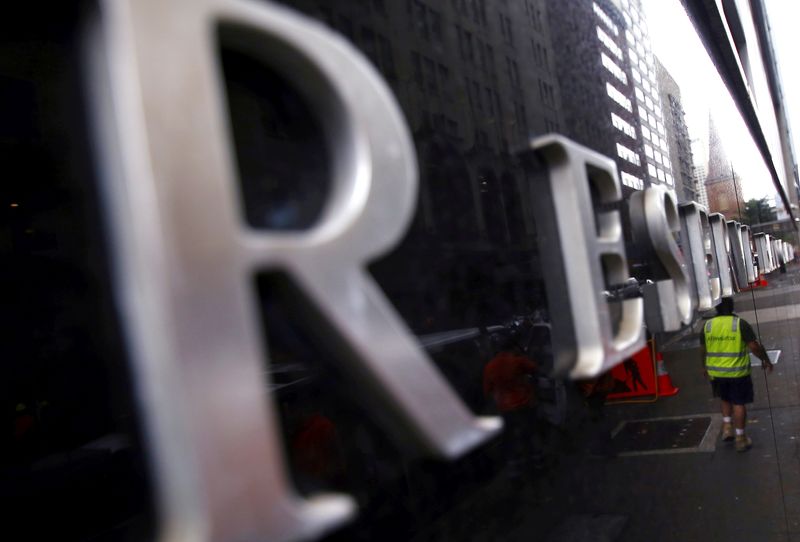By Wayne Cole
SYDNEY (Reuters) -Australia's central bank on Tuesday raised interest rates for a fourth month running, but tempered guidance on further hikes as it forecast faster inflation but also a slowdown in the economy.
Wrapping up its August policy meeting, the Reserve Bank of Australia (RBA) lifted its cash rate by 50 basis points to 1.85%, marking an eye-watering 175 basis points of hikes since May in the most drastic tightening since the early 1990s.
Yet, RBA Governor Philip Lowe also made the outlook for policy more conditional.
"The Board expects to take further steps in the process of normalising monetary conditions over the months ahead, but it is not on a pre-set path," said Lowe.
That was taken as a dovish move by markets given Lowe had repeatedly stated the RBA Board wanted to get rates to a neutral level of at least 2.5%, where it theoretically would neither stimulate nor retard economic growth.
Investors reacted by knocking the local dollar down 0.9% to $0.6963, while three-year bond futures climbed 11 ticks to 97.280 as the market trimmed bets on how far and fast rates would ultimately rise.
Swap markets lengthened the odds on another half point hike in September and shifted to imply a peak of around 3.31%, down from 3.41% before the RBA statement.
"The statement was on the dovish side of expectations, suggesting that the discussion at the September meeting may well move back to the 25bp or 50bp debate," said Adam Cole, a strategist at RBC Capital Markets.
Lowe also updated the RBA's economic forecasts, saying consumer price inflation was expected to peak around 7.75% compared to 7% previously and 6.1% in the June quarter.
Inflation was not seen returning to the top of the RBA's 2-3% target band until 2024.
Forecasts for economic growth were downgraded to 3.25% over 2022 and 1.75% in each of the following years. Previously the bank had forecast growth of 4.2% in 2022 and 2.0% in 2023.
KEEPING AN EVEN KEEL
Lowe had argued the economy could withstand the pain with unemployment at 48-year lows of 3.5% and job vacancies at all-time highs. Household demand has fared relatively well, thanks in part to A$260 billion ($178.59 billion) in extra savings amassed during pandemic lockdowns.
Yet, higher borrowing costs are proving a heavy drag on spending power given households owe A$2 trillion in mortgage debt and home values are now in sharp retreat after a bumper 2021.
The hikes delivered so far will add around A$560 a month in repayments to the average A$620,000 mortgage, and that is on top of surging bills for energy and food.
Lowe has come in for some criticism over the rapid series of hikes with one local tabloid calling for him to quit his job.

Treasurer Jim Chalmers has defended the central bank's independence, though he recently launched a review of policy making and the Board to see if it needed modernising.
Lowe himself on Tuesday conceded the bank was walking a "narrow path" between taming inflation and keeping the economy on an "even keel".